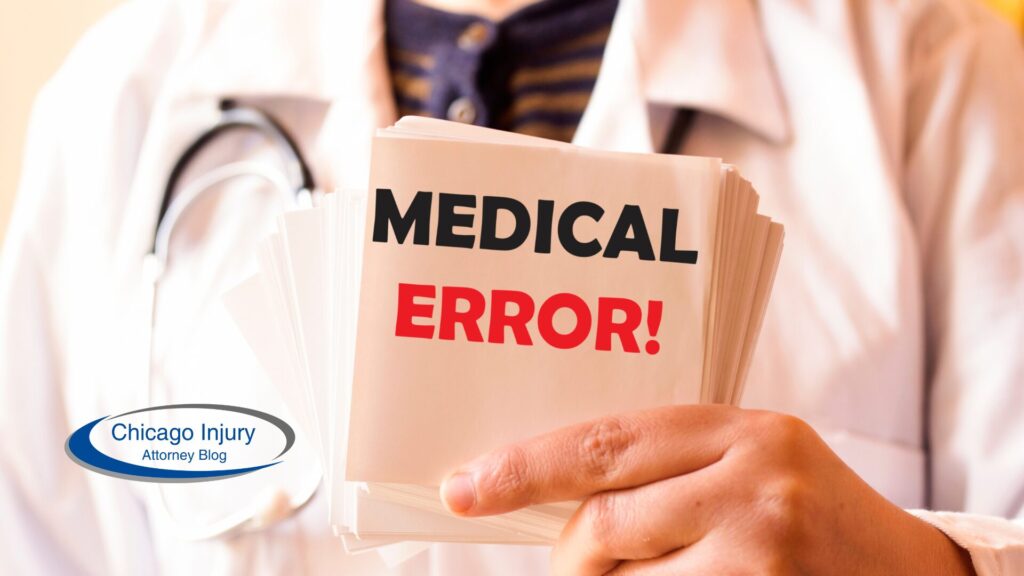Proving fault in medical malpractice cases is a complex and arduous process that requires a deep understanding of legal standards and medical practices.
It involves meticulously examining medical records, consulting with experts to establish the acceptable standard of care for a given situation, and presenting compelling evidence to support the claim of negligence. Expert witnesses, often specialists in the relevant field, play a critical role in providing opinions on whether the healthcare provider’s actions deviated from the expected norms.
Legal representation not only provides guidance on the complex legal aspects of the case but also advocates for the patient’s rights in court. An experienced attorney can help navigate the complexities of medical malpractice laws, statutes of limitations, and procedural requirements.
Understanding the Burden of Proof
In medical malpractice cases, understanding the burden of proof is essential to establish the elements required to demonstrate negligence or deviation from the standard of care. This burden involves presenting compelling evidence linking the healthcare provider’s actions to the patient’s injury or damages.
Medical malpractice cases demand a meticulous examination of the standard of care expected from healthcare professionals and whether the actions taken deviated from these norms.
The weight of proving these elements rests on the plaintiff, necessitating a preponderance of evidence to showcase the healthcare provider’s breach of duty.
The importance of expert testimonies from specialists cannot be understated; their insights help in elucidating complex medical procedures and protocols.
Duty of Care
The duty of care is a fundamental concept in medical malpractice cases, where healthcare providers are expected to provide treatment consistent with established standards. Any breach of this duty can lead to allegations of negligence and malpractice.
Deviation From the Standard
Deviation from the standard of care occurs when healthcare providers fail to meet established norms or guidelines in their treatment of patients. Such deviations can indicate potential negligence and malpractice.
A Causal Link
Establishing a causal link is crucial in medical malpractice cases to connect the actions or omissions of a healthcare provider directly to the patient’s injury or harm. This link serves as a critical element in proving negligence and liability.
Specific Damages
Specific damages in medical malpractice cases refer to the tangible harm or losses suffered by the patient due to the negligence or malpractice of a healthcare provider. These damages can include physical injuries, financial losses, and emotional distress.
Additional Hurdles in Proving Medical Malpractice
Along with the core elements of proving fault in medical malpractice cases, there are several additional hurdles that plaintiffs may face. These include challenges related to determining fault, establishing liability, securing costly expert witnesses, and overcoming potential jury biases.
One crucial aspect is the determination of fault, which can be complex and multifaceted in medical malpractice scenarios. Physicians may argue that the standard of care was met, while plaintiffs must demonstrate the breach of this standard.
Establishing liability is another critical challenge, as it involves proving that the medical professional’s negligence directly caused harm to the patient.
The process of securing expert witnesses can be arduous and expensive, requiring specialized medical knowledge to support the plaintiff’s case effectively. In court, the presence of potential biases among the jury members adds another layer of complexity, influencing the outcome of the trial.
Determining Fault
Determining fault in medical malpractice cases involves a thorough assessment of the actions or inactions of healthcare providers that led to patient harm. This process requires examining the evidence to establish negligence and liability.
Determining Liability
Determining liability in medical malpractice cases involves establishing the legal responsibility of healthcare providers for the injuries or damages suffered by patients. This determination relies on a comprehensive review of evidence and legal standards.
Costly Witnesses
Securing expert witnesses in medical malpractice cases can be a costly endeavor due to the specialized knowledge and testimony these professionals provide. The expenses associated with expert witness testimony can present financial challenges for plaintiffs seeking to prove their case.
Potential Jury Biases
Potential jury biases pose a significant challenge in medical malpractice trials, as preconceived notions or beliefs about healthcare providers, legal matters, or personal experiences can influence juror perceptions and verdicts. Addressing and mitigating these biases are critical for a fair trial.
Illustrative Examples of Medical Malpractice
Exploring illustrative examples of medical malpractice can provide insight into the diverse scenarios where healthcare providers’ negligence or errors have resulted in patient harm. These examples serve as cautionary tales and learning opportunities for both medical professionals and patients.
Consider a case where a surgeon performs the wrong procedure on a patient due to a mix-up in medical records. The patient suffers unnecessary complications and requires additional surgeries to correct the mistake. This not only impacts the patient’s physical health but also raises questions about the hospital’s protocol and staff communication.
In another scenario, a pharmacist dispenses the wrong medication to a patient, causing an adverse drug reaction that leads to hospitalization. The patient’s existing health conditions worsen, resulting in prolonged recovery and emotional distress for the individual and their family.
Instances of misdiagnosis, such as mistaking a benign tumor for a malignant one, can lead to unnecessary aggressive treatments like chemotherapy. This could have serious implications on the patient’s quality of life and long-term prognosis.
Finding and Evaluating Competent Medical Malpractice Attorneys
In terms of medical malpractice cases, finding and evaluating competent attorneys is paramount to building a strong legal strategy. These attorneys specialize in navigating the complexities of malpractice law and can provide essential guidance throughout the legal process.
Medical malpractice attorneys play a crucial role in representing individuals who have suffered harm due to the negligence of healthcare providers. They are well-versed in the intricate details of malpractice cases and have the expertise to gather evidence, consult with medical experts, and negotiate settlements on behalf of their clients.
- These attorneys are adept at handling the nuances of medical malpractice laws, which vary from state to state, ensuring that victims receive the justice and compensation they deserve.
- By working closely with their clients, medical malpractice attorneys are able to build strong cases, prepare for litigation, and advocate tirelessly for the rights of those who have been wronged.
Regional Insights: Medical Malpractice Cases in Baltimore
Examining medical malpractice cases in Baltimore offers valuable regional insights into the prevalence, challenges, and legal outcomes of such claims. Understanding the unique dynamics of malpractice cases in this region can inform both patients and legal professionals about the nuances of seeking justice.
One notable trend in Baltimore’s medical malpractice cases is the increasing use of expert witnesses to establish the standard of care. Legal precedents set by past cases serve as crucial benchmarks for current litigations, influencing the strategies adopted by both plaintiffs and defendants. Regional considerations such as local healthcare regulations and jury demographics can significantly impact the outcome of malpractice lawsuits.
The involvement of specialist attorneys well-versed in Maryland’s laws is imperative in navigating the complexities of malpractice claims. The competitive nature of Baltimore’s legal landscape adds another layer of challenge when pursuing justice in such cases. Recognizing these intricacies helps stakeholders to better prepare and handle medical malpractice disputes efficiently.
Exploring Different Categories of Medical Malpractice
Exploring different categories of medical malpractice can shed light on the diverse ways in which patient safety can be compromised within the healthcare system. Understanding these categories is essential for identifying risks, preventing errors, and advocating for improved standards of care.
One prevalent category of medical malpractice involves misdiagnosis, where a healthcare provider inaccurately identifies a patient’s condition, leading to delayed or inappropriate treatment.
Diagnostic errors can result in patient harm, worsened health outcomes, and additional medical expenses.
Another significant type is surgical errors, encompassing mistakes during surgical procedures such as wrong-site surgery or leaving surgical instruments inside a patient’s body.
These errors can result in serious complications, infections, and even fatalities.
Seeking Assistance: How Can We Support Your Case?
Seeking assistance for your medical malpractice case involves connecting with experienced attorneys who can provide the legal support and guidance needed to pursue a successful claim. These professionals work tirelessly to advocate for victims and hold negligent healthcare providers accountable.
Legal support is crucial in navigating the complexities of medical malpractice cases. Attorneys specializing in this field offer a deep understanding of the laws governing healthcare negligence and malpractice. They carefully review medical records, consult with expert witnesses, and construct compelling arguments to establish liability. Victim advocacy is a cornerstone of their practice, ensuring that the needs and rights of those who have suffered harm are vigorously defended.
Locating Legal Support Near You
Locating legal support near you for medical malpractice cases is essential for initiating legal proceedings and securing representation. Finding attorneys with expertise in malpractice law can significantly impact the outcome of your case.
Frequently Asked Questions
What is the main challenge in proving fault in medical malpractice cases?
The main challenge in proving fault in medical malpractice cases is establishing that the healthcare provider failed to meet the standard of care expected in their profession and that this failure directly caused harm to the patient.
What is the standard of care in medical malpractice cases?
The standard of care is the level of skill, care, and treatment that a reasonably competent healthcare provider in the same specialty would have provided under similar circumstances. It serves as the benchmark for determining whether or not a healthcare provider is at fault for medical malpractice.
What evidence is needed to prove fault in a medical malpractice case?
Evidence such as medical records, expert testimony, and witness statements may be used to prove fault in a medical malpractice case. It is important to gather as much evidence as possible to build a strong case and demonstrate the healthcare provider’s failure to meet the standard of care.
Can a medical malpractice case be settled without going to court?
Yes, it is possible for a medical malpractice case to be settled outside of court through negotiations between the parties involved, often with the assistance of attorneys. This can be a faster and less expensive option for both parties, but it may not always result in the desired outcome for the victim.
How long do I have to file a medical malpractice lawsuit?
In Illinois, the statute of limitations for filing a medical malpractice lawsuit is two years from the date of the injury or from the date when the injury was discovered, or reasonably should have been discovered. It is important to consult with a qualified attorney as soon as possible to ensure that your case is filed within the designated time frame.
What should I do if I believe I am a victim of medical malpractice?
If you believe that you have been a victim of medical malpractice, it is important to seek legal advice from a qualified attorney who specializes in medical malpractice cases. They can review your case and determine the best course of action for seeking justice and compensation for your injuries.





